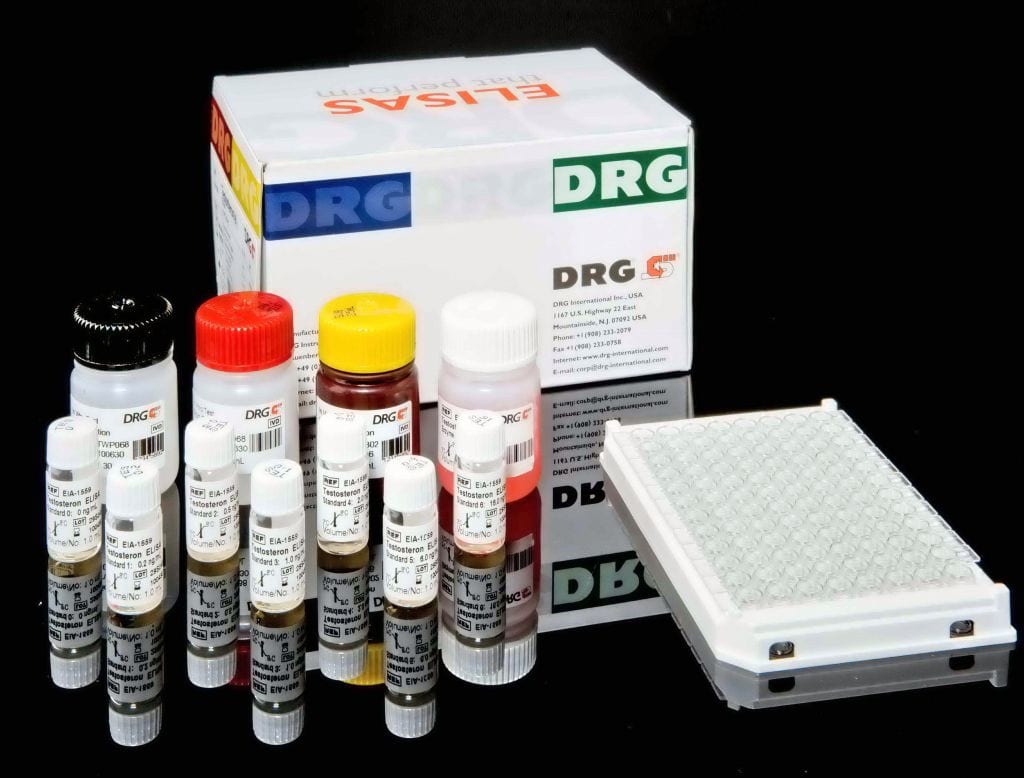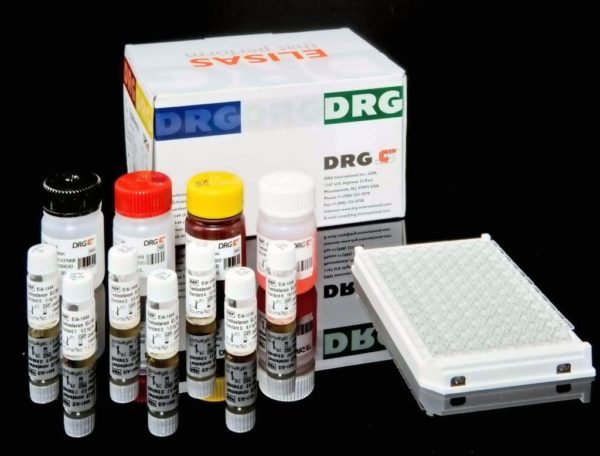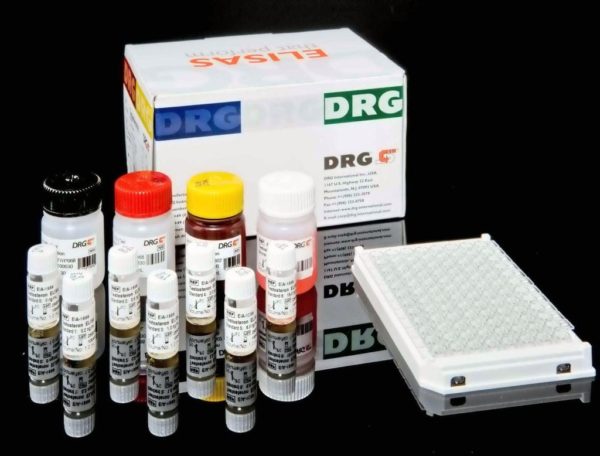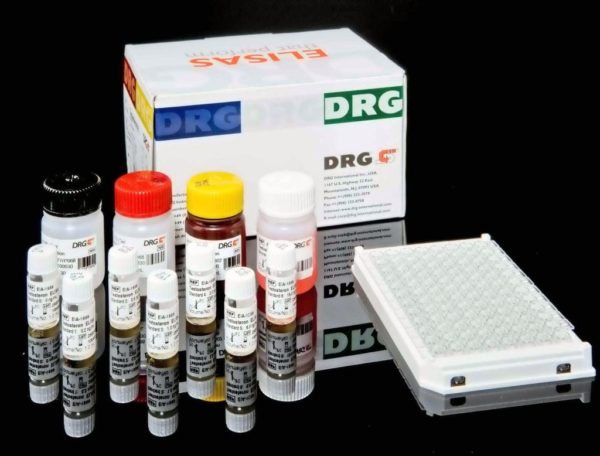Description
C1q ELISA is a test system for the quantitative measurement of IgG class autoantibodies against C1q in human serum or plasma.
This product is intended for professional in vitro diagnostic use only.
Highly purified C1q is bound to microwells. The determination is based on an indirect enzyme linked immune reaction with the following steps: Specific antibodies in the patient sample bind to the antigen coated on the surface of the reaction wells. After incubation, a washing step removes unbound and unspecifically bound serum or plasma components. Subsequently added enzyme conjugate binds to the immobilized antibody-antigen-complexes. After incubation, a second washing step removes unbound enzyme conjugate. After addition of substrate solution the bound enzyme conjugate hydrolyses the substrate forming a blue coloured product. Addition of an acid stops the reaction generating a yellow
end-product. The intensity of the yellow colour correlates with the concentration of the antibody-antigen-complex and can be measured photometrically at 450 nm.
An intact classical pathway of the complement system is essential for protection against immune complex diseases. C1q is a central molecule in the first step of the classical complement activation pathway. The globular heads of C1q bind to the Fc regions of immunoglobulins IgM or IgG thus inducing an activation of the other subcomponents of C1, C1r and C1s. The presence of Anti-C1q autoantibodies is associated with several autoimmune and renal illnesses. Containing an occurrence of 100% in the hypocomplementaemic uricarial vasculitis syndrome (HUVS), Anti-C1q autoantibodies act as a diagnostic marker for this disease [7]. They were also described in systemic lupus erythematosus (SLE) and
especially in lupus nephritis. It was discovered that up to 60% of patients with SLE [2] and up to 80% of patients with diffuse proliferative lupus nephritis [1] have such antibodies. Anti-C1q autoantibodies were also reported in various other rheumatic diseases such as Felty’s syndrome, rheumatoid vasculitis or classic polyarteritis nodosa [1]. Serial measurement of anti-C1q titers will be an effective tool for the guidance of immunosuppressive therapy in SLE patients. Anti-C1q autoantibodies may be especially relevant for monitoring of lupus nephritis activity. The highest anti-C1q titers were found in patients with active lupus nephritis. It was also demonstrated that rises in anti_C1q titers have predictive value for ensuing relapses of lupus nephritis. [1] It is described that in some cases patients with clinical active lupus were found as anti-dsDNA negative, so anti_C1q
antibodies may serve as an additional tool for rheumatologist to document lupus activity. [2].




